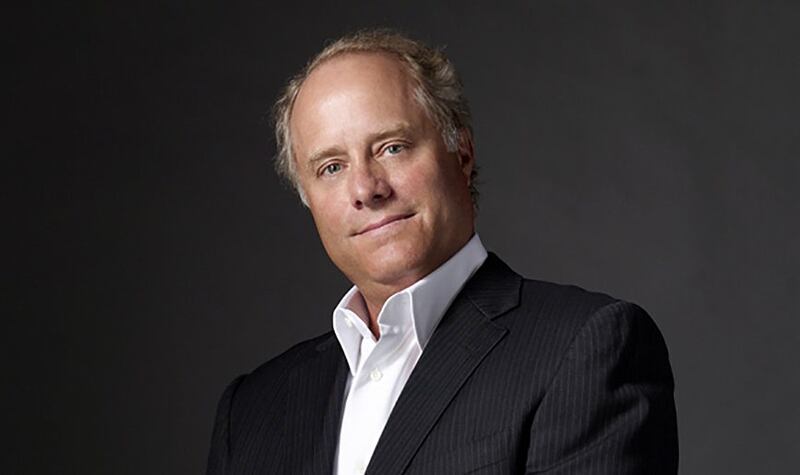
The Business of Fashion
Agenda-setting intelligence, analysis and advice for the global fashion community.

Agenda-setting intelligence, analysis and advice for the global fashion community.

Hello BoF Professionals, your exclusive ‘This Week in Fashion’ briefing is ready, with members-only analysis on the key topic of the week and a digest of the week’s top news.
Catch up on everything that happened this week at #BoFVOICES, our annual gathering for big thinkers in partnership with QIC Global Real Estate. For the first time, the live-stream of all the talks on our main stage was available exclusively for BoF Professional members. Didn’t get a chance to watch the livestream? Catch up on everything that happened here.
OXFORDSHIRE, United Kingdom — The fashion industry can change the fate of the world. This multi-trillion-dollar sector, sitting at the heart of consumer culture and the daily expression of identity, has a bigger role to play than many realize in addressing some of the weightiest issues facing humankind, from sustainability to the rise of the "big tech" companies than increasingly dominate our lives.
What does it mean to be human? And what kind of a world do we want to inhabit? Questions like these were at the crux of the collective conversation at VOICES, BoF’s annual gathering for big thinkers, in partnership with QIC Global Real Estate, which attracted fashion industry leaders, entrepreneurs, technologists, activists and other experts, innovators and catalysts to Soho Farmhouse in Oxfordshire.
ADVERTISEMENT
A robust program of talks — featuring a wide range of speakers from Cambridge Analytica whistleblower Christopher Wylie to ethical fashion designer Stella McCartney — sparked spirited conversations that often stretched into the evenings, at intimate salons and other informal exchanges across the countryside property.
Perhaps more explosive of all was Wylie, who revealed how controversial political marketing firm Cambridge Analytica weaponized fashion labels to elect Donald Trump president of the United States in 2016, using Facebook "likes" for fashion brands like Wrangler and LL Bean to target the political messaging that helped Steve Bannon build his alt-right army.
But the event also grappled with issues like environmental degradation and the mistreatment of garment workers. Americans send well over 1 billion pounds of garment waste to landfills every month, while garment workers are still routinely mistreated in Bangladesh five years after the Rana Plaza disaster was supposed to have galvanised the global fashion industry to action.
But if fashion’s hands are dirty, the industry also has the tools to reduce its negative impact and solve global problems. Here are the top takeaways from VOICES 2018.
1. In the Face of Big Tech, Hold Onto Humanity
Though Cambridge Analytica used social media preferences for fashion labels to help elect Trump, Wylie suggested that brands could play a powerful role in shaping and not just signaling political leanings, charging companies with a responsibility to act.
For too long, brands propagated racial biases, toxic masculinity, fat shaming and other social ills, priming the culture for Trump’s takeover, said Wylie. “We need cultural defence and we all define these cultural narratives. When we talk about cultural warfare it’s warfare in culture, and you guys make the culture. We depend on you to not only make our culture but protect our culture. It is up to you if Trump becomes the Crocs or the Chanel of our political age.”
But the underlying danger, he said, was the unchecked power of technology companies mining our personal data. “Silicon Valley sees the internet as terra nova,” he explained, likening tech giants such as Facebook to conquerors. “These companies are not our saviours, they are seeking to colonise us,” he said. “Facebook is the new East India company of the internet.”
ADVERTISEMENT
"Big tech is actually a bigger threat than Trump ever could be," said Lucie Greene, author of "Silicon States: The Power and Politics of Big Tech and What It Means for Our Future," speaking after Wylie. But not everyone was ready to cast technology as a cause of society's ills. Benedict Evans, an author and partner at Silicon Valley venture capitalist firm Andreessen Horowitz, noted how new technologies were creating tremendous opportunities for value creation, a sentiment that was underscored by entrepreneurs ranging from StockX founder Josh Luber to Magic Leap's Rachna Bhasin and Rebecca Barkin. The trick is to find the right balance between technology and human fundamental human rights and values.
It was Alber Elbaz who reminded attendees most poignantly how beautiful humanity can be, delivering a poetic ode to what's genuinely important in life, hand-written on a hundred-odd pages of paper, each of which he dispatched to the floor with a flourish after he had finished with it. At the end of the talk, he burst into the Aretha Franklin song R-E-S-P-E-C-T.
2. Collaboration Can Unlock Change
This year at VOICES, Stella McCartney announced a fashion industry charter to combat climate change, formed via a partnership between her brand and the United Nations. In addition to the charter, which includes 16 commitments for signatories to mitigate the industry's damage to the planet, McCartney said she's also launching Stella McCartney Cares Green, a charity dedicated to educating the fashion industry about sustainability.
The through line between the two efforts is an emphasis on collaboration. McCartney said the point of both the charter and her new charity is to ensure the environmentally friendly practices developed at her brand gain a foothold in the wider industry — to take an “open source” approach to sustainability.
Developing new materials is an expensive and time-consuming process. McCartney said it took over two years to develop a viscose yarn made from trees grown using sustainable forest practices. She said an “open source” approach would allow companies to quickly adopt promising ideas, even if they were developed by competitors. “I want to share that information,” she said. I don’t want to have to do it alone, it takes so much for us to do this, it’s nice if we can do it together.”
Technology is another way to foster collaboration. Blockchain, by providing a secure means of exchanging money and information, will allow more direct interactions between brands and their fans, said Peter Smith co-founder and chief executive of Blockchain, the world's largest software provider for digital currency and distributed ledger technology. "It will change the power structure between the people who create and the people who buy and the people in the middle who finance," he said. "It will change how things are financed. Things like fashion could be financed directly rather than indirectly."
Conversely, when the industry fails to come together, change becomes exponentially more difficult. Kalpona Akter, an activist on behalf of Bangladeshi garment workers, said the failure of Western brands to coalesce around humane labour standards is one reason many factory owners feel they can mistreat labourers with impunity. After the Rana Plaza building collapse killed 1,100 workers, signatories to a legally binding fire and building safety accord swelled from a handful to over 200. However, some of the biggest clothing sellers — including Walmart and Gap — never signed on, and some, including Abercrombie & Fitch, have since dropped out. "They didn't want to take responsibility," she said.
ADVERTISEMENT
3. One World, But Many Individuals
Globalisation and the internet have made the world far more interconnected than ever before. Today, just about every fashion brand is laser-focused on China, soon to become the world’s top luxury market. India, with 1.3 billion people and a fast-growing economy, isn’t far behind on the list of priorities. But treating either nation as a monolith is a mistake, speakers warned.
China's consumers live in poor provincial cities that are just getting wired for online shopping, and rich coastal megalopolises and tech hubs where incomes and shopping habits mirror the wealthiest European and American fashion hubs. "There is no one China," said McKinsey & Co. global managing partner Kevin Sneader.
India, too, is highly diverse and changing rapidly. For one, women are growing more assertive in challenging patriarchal norms, breaking down taboos around sex and demanding to play roles in society beyond wife or mother, said Karla Bookman, founder and editor of The Swaddle, a women's health and culture site based in India. "Feminism has been alive and well in India for a long time," she said. "What has changed is where they are pushing back against the status quo [and] they now have more of a platform with social media." Again, the world is full of multiplicity and brands need to wise up.
4. Activism Needs More Action, Less Talk
Katherine Hamnett started her panel by tossing T-shirts emblazoned with the slogan "Fashion Hates Brexit" into the audience. But the vocal opponent of Britain's exit from the European Union had a larger point. "I think T-shirts are great, marches are great, but unless you follow them up with political action, holding your elected representative to account… this is what we actually have to do," she said.
Fashion brands often make one-off gestures: a trans models on a catwalk, or a one-time donation to a trendy cause. But this is where activism begins, not where it ends, said many of the speakers at VOICES. "In this moment, people are more in love with the idea of resistance than the work of resistance," said DeRay Mckesson, an activist and author best known for his work with Black Lives Matter.
This year has seen some signs of that changing, with more brands taking bolder stances on controversial issues, most famously Nike's endorsement deal with Colin Kaepernick. But Pyer Moss designer Kerby Jean-Raymond described his disgust with participants in a recent diversity conference, where executives called inclusion a "trend" that was "good for business."
THE NEWS IN BRIEF
BUSINESS AND THE ECONOMY

Photo: Paul Price for BoF
Kering to take control of e-commerce, ending YNAP partnership. The French luxury conglomerate is planning to take e-commerce in-house, dealing a blow to Yoox Net-a-Porter, which currently manages online sales for most of its brands, including Saint Laurent and Balenciaga. The transition is expected to be complete in the first half of 2020. Kering also announced a partnership with Apple to develop a suite of apps to support sales staff across its brands' stores.
PVH falls short of revenue estimates on poor response in Calvin Klein. The company missed Wall Street's estimates for the first time in at least two years due to poor response to Calvin Klein Jeans' recent relaunch and rebrand. The fashion line, in an attempt to connect with its young audience, has been roping in influencers and setting up pop-up stores where shoppers can try on its jeans and order them on the online retailer's app. Shares of the company, which have lost a fifth of its value this year, fell 8 percent.
Gucci tax evasion trial likely. According to a judicial source, the Italian fashion house is facing a tax evasion trial with prosecutors alleging that revenues booked 2010 to 2016 should have been taxed in Italy, not in Switzerland. The company potentially owes the Italian tax authorities around €1 billion. Meanwhile, this week Kering chief Francois-Henri Pinault said that the brand will branch into high-end jewellery with a collection in June or July. Jewellery has been one of the best performing corners of the luxury industry in 2018, according to consultancy Bain.
Tory Burch buys back stake. The American fashion house is buying back a minority stake of approximately 20 percent, which it had sold to Mexico-based, family investment firm Tresalia Capital in 2009. Investors General Atlantic and BDT Capital Partners maintain a stake in the business, which they acquired in 2013, reportedly from Burch's ex-husband, the serial entrepreneur Christopher Burch.
Abercrombie & Fitch shares soar as sales beat expectations. The company surged as much as 21 percent after sales at both its namesake and Hollister Co. brands beat Wall Street expectations heading into the critical holiday quarter. Total comparable-store sales rose 3 percent, beating estimates for a gain of 1.7 percent, which marks the fifth straight quarter of growth. Digital sales grew 16 percent last quarter, thanks to online expansion as the company tries to woo back younger shoppers.
H&M sentiment shifts as recent gains erase year's deep losses. After shares slumped some 50 percent in the past three years, the company's stock gained 36 percent in the past three months, thanks to better-than-expected sales for the third quarter and speculation that its biggest shareholder may seek to take the company private. H&M also announced it would shut down its struggling Cheap Monday brand, which was welcomed as a sign that the retailer is willing to make tough decisions.
J.Crew says sales accelerated in departed chief executive's last quarter. The group's turnaround orchestrated by its recently ousted chief appears to have staying power, with the retailer reporting its third straight comparable sales gain (this time of 8 percent, the most in over five years) after years of declines. James Brett departed suddenly as chief executive earlier this month shortly after relaunching J.Crew's namesake brand to offer more size options and entry-level prices.
Tiffany's sales miss as Chinese tourists spend less. The jewellery maker's shares fell nearly 8 percent after sales in Hong Kong and the US fell short of expectations. Net income fell to $94.9 million from $100.2 million a year earlier, while total revenue rose 3.7 percent to $1.01 billion. Investors were disappointed by the company's failure to raise its full-year profit outlook ahead of the holiday season.
PEOPLE

Bob Sauerberg | Source: Courtesy
Bob Sauerberg to exit Condé Nast. The move comes as the publisher will merge its US and international arms to form a global company. Sauerberg, chief executive of the American operation, will step down after a global chief executive is found. Jonathan Newhouse, current chief executive of Condé Nast International in London, will become chairman of the board of directors. Other senior executives, including CNI president Wolfgang Blau, will remain in their current roles. The publisher does not plan to merge the staffs of any more magazines at this time.
Unilever names chief executive. Alan Jope will succeed Paul Polman as chief executive as of January 1. Jope was previously head of the beauty and personal care division — the company's largest last year, with sales of 20.7 billion euros ($23.6 billion). Polman is leaving the company but will stay on for another six months to oversee the handover process. Shares rose as much as 0.6 percent early Thursday and are up about 5 percent for the year.
MEDIA AND TECHNOLOGY
Cyber Monday sales hit record in holiday shopping blitz. The five-day Thanksgiving shopping period saw combined sales at the US's largest web retailers rise more than 23 percent to $24.2 billion. Cyber Monday's revenue of $7.9 billion made it the largest online shopping day of all time in the US. Amazon also saw its biggest shopping day in history on Cyber Monday. However, the e-commerce surge puts increasing pressure on retailers who have to spend more on already-elevated shipping costs. Analysts fear that a "February hangover" could be the result.
Singapore malls take big gamble to outpace e-commerce. With falling rents and rising vacancies, malls are repositioning to make room for yoga studios, boxing gyms and climbing walls in the hope of making people stay. E-commerce in Singapore is relatively minor for a developed economy and the city-state is tied with Hong Kong for the most retail space per capita in Asia.
BoF Professional is your competitive advantage in a fast-changing fashion industry. Missed some BoF Professional exclusive features? Click here to browse the archive.
From analysis of the global fashion and beauty industries to career and personal advice, BoF’s founder and CEO, Imran Amed, will be answering your questions on Sunday, February 18, 2024 during London Fashion Week.
The State of Fashion 2024 breaks down the 10 themes that will define the industry in the year ahead.
Imran Amed reviews the most important fashion stories of the year and shares his predictions on what this means for the industry in 2024.
After three days of inspiring talks, guests closed out BoF’s gathering for big thinkers with a black tie gala followed by an intimate performance from Rita Ora — guest starring Billy Porter.